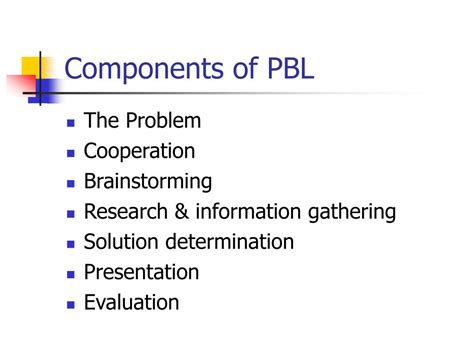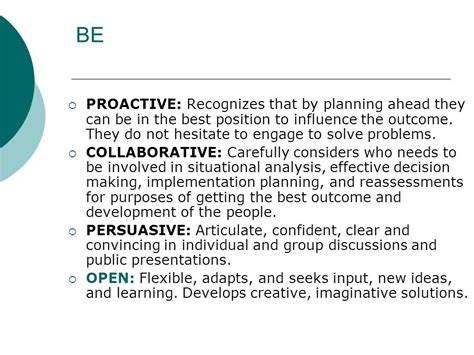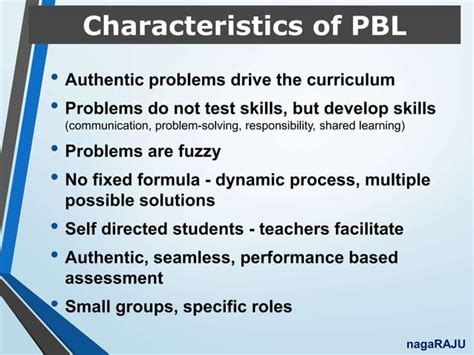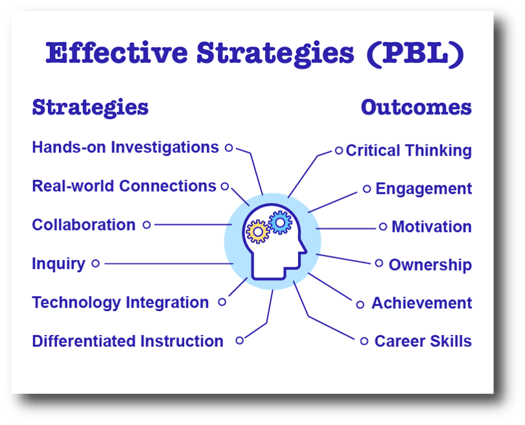Inquiry-Based Science is transforming the modern classroom by shifting the focus from passive learning to active exploration. This educational approach encourages students to ask questions, investigate problems, and develop their understanding through hands-on experiences. As educators seek to enhance student engagement and foster critical thinking skills, Inquiry-Based Science stands out as a powerful method. In this article, we will delve into the definition and principles of Inquiry-Based Science, explore its numerous benefits, and provide key strategies for successful implementation. We’ll also examine real-world examples, discuss the crucial role of teachers, and address challenges, all while looking ahead to the future of this dynamic approach in science education.
Join electrapk.com as we uncover the details of this topic.
1. Definition and Principles of Inquiry-Based Science
Inquiry-Based Science is an educational approach that empowers students to learn by actively participating in the scientific process. Rather than passively receiving information, they transform into investigators, driven by curiosity to explore questions, formulate hypotheses, design and conduct experiments, and analyze data to draw meaningful conclusions. This method mirrors the practices of real-world scientists, fostering a more authentic and relevant learning experience.
Inquiry-Based Science places emphasis on student curiosity, hands-on learning, and critical thinking skills. This approach motivates students to ask open-ended questions and find answers through observation, experimentation, and analysis. A key component is collaboration, as students frequently work together to solve problems and share their findings.
This approach is grounded in the belief that learning is most effective when students are actively involved in the process, rather than being passive recipients of information. By allowing students to take ownership of their learning, Inquiry-Based Science fosters deeper understanding and retention of scientific concepts.
Moreover, it helps develop essential skills such as problem-solving, data analysis, and logical reasoning. These skills are not only crucial for success in science but are also transferable to other areas of study and everyday life. In essence, Inquiry-Based Science transforms the classroom into a dynamic environment where curiosity drives learning and students become active participants in their education.

2. Benefits of Inquiry-Based Science for Student Engagement
Inquiry-Based Science is a highly effective educational approach that offers numerous benefits for student engagement. A primary advantage of this method is its ability to actively involve students in the learning process. This transforms them from passive recipients of information into active participants. By encouraging curiosity and critical thinking, Inquiry-Based Science keeps students motivated and interested in the subject matter.
This method also cultivates a more profound grasp of scientific principles. By actively engaging in questioning, experimentation, and data analysis, students forge a deeper connection with the subject matter. This hands-on engagement facilitates longer retention of information and its application to real-life scenarios.
Inquiry-Based Science emphasizes collaboration, often incorporating group work. This fosters communication, active listening, and problem-solving skills as students share ideas and work together. These collaborative experiences enrich learning while simultaneously developing crucial teamwork and social skills.
Furthermore, Inquiry-Based Science fosters the growth of problem-solving skills and critical thinking. Through active participation in the scientific process, students develop the ability to tackle challenges systematically, assess evidence, and form logical deductions. These abilities are not limited to science but are essential for navigating all aspects of life, laying the groundwork for future academic and professional achievements.

3. Key Strategies for Implementing Inquiry-Based Learning in Science
Implementing Inquiry-Based Learning in science requires a thoughtful approach to ensure students are fully engaged and supported throughout the process. One of the first key strategies is to start with open-ended questions that spark curiosity and encourage exploration. These questions should be designed to challenge students to think critically and investigate topics deeply, rather than seeking straightforward answers.
Another important strategy is to provide students with opportunities for hands-on experimentation. Allowing them to design and conduct their own experiments fosters a sense of ownership over their learning. Teachers should guide students in developing hypotheses, selecting appropriate materials, and analyzing their results, while still giving them the freedom to explore and make discoveries on their own.
Collaboration is also essential in Inquiry-Based Learning. Encourage students to work in groups where they can share ideas, debate findings, and build on each other’s insights. This not only enhances their understanding but also helps them develop communication and teamwork skills.
Scaffolding is another crucial strategy, where teachers provide support by breaking down complex tasks into manageable steps. This approach helps students build confidence as they gradually take on more responsibility for their learning.
Finally, reflection should be integrated into the process. After completing an inquiry, students should be encouraged to reflect on their findings, consider what they have learned, and discuss how their understanding has evolved.

4. Examples of Successful Inquiry-Based Science Projects
Successful Inquiry-Based Science projects illustrate the effectiveness of this approach in fostering deep understanding and engagement. One notable example is the “Water Quality Investigation” project, where students explore the impact of pollutants on local water sources. In this project, students collect water samples from different locations, test for contaminants, and analyze their findings. This hands-on experience not only teaches them about environmental science but also highlights the real-world implications of pollution and the importance of conservation efforts.
Another successful project is the “Plant Growth Experiment,” where students investigate the factors affecting plant development. They design experiments to test variables such as light, water, and soil composition, recording their observations over several weeks. This project allows students to apply scientific principles in a tangible way, enhancing their understanding of biology and ecology.
The “Rocket Design Challenge” is also a compelling example. Here, students use principles of physics and engineering to design, build, and test small rockets. They experiment with different materials, shapes, and propulsion methods, learning about aerodynamics, force, and motion in the process. This project not only engages students in scientific inquiry but also encourages creativity and problem-solving.
These examples demonstrate how Inquiry-Based Science projects can bring abstract concepts to life, making learning more relevant, engaging, and impactful for students.
5. Role of Teachers in Facilitating Inquiry-Based Learning
Inquiry-Based Learning thrives on the guidance of teachers, who act as mentors rather than traditional lecturers. Their crucial role is to foster an environment that nurtures curiosity and exploration. This involves crafting open-ended questions that spark critical thinking, and equipping students with the tools and resources to delve into these questions.
Teachers provide support by scaffolding student learning. They break down complex tasks into manageable steps, gradually increasing student responsibility. Furthermore, they excel at asking thought-provoking questions that encourage students to reflect on their discoveries and expand their understanding.
Beyond directing individual investigations, teachers in Inquiry-Based Learning promote collaboration. They encourage group work and discussions, helping students develop their communication skills, active listening, and the ability to build upon each other’s ideas. The ultimate goal is to cultivate a classroom environment where curiosity fuels the learning process and students evolve into active, self-directed learners.
6. Assessing Student Outcomes in Inquiry-Based Science
Assessing student outcomes in Inquiry-Based Science requires a multifaceted approach that goes beyond traditional testing methods. Since this learning model emphasizes critical thinking, problem-solving, and hands-on experimentation, assessments should reflect these diverse skills and experiences.
One effective way to assess student outcomes is through performance-based assessments, where students demonstrate their understanding by completing real-world tasks. For example, they might present their findings from a science project, create a report, or design an experiment. These assessments allow teachers to evaluate how well students can apply scientific principles, conduct research, and communicate their ideas.
Another important aspect of assessment is formative evaluation, which involves ongoing feedback throughout the inquiry process. Teachers can use observations, checklists, and informal discussions to monitor student progress and provide guidance as needed. This approach helps ensure that students are on the right track and supports their learning journey.
Reflective assessments are also crucial in Inquiry-Based Science. Encouraging students to reflect on their learning experiences through journals, portfolios, or presentations helps them articulate what they have learned, recognize their growth, and identify areas for improvement.
Finally, peer assessment can be a valuable tool, allowing students to evaluate each other’s work and provide constructive feedback. This not only deepens their understanding but also fosters a collaborative learning environment. By using a combination of these strategies, teachers can effectively assess the comprehensive outcomes of Inquiry-Based Science learning.
7. Overcoming Challenges in Inquiry-Based Science Implementation
Implementing Inquiry-Based Science can present several challenges, but with thoughtful strategies, these obstacles can be addressed effectively. One common challenge is the time required for planning and executing inquiry-based activities. Teachers may need additional time to design open-ended questions, set up experiments, and provide individualized support. To overcome this, educators can collaborate with colleagues to share resources and strategies, or integrate inquiry-based activities into existing curriculum frameworks.
Another challenge is ensuring all students have equal access to resources and support. Teachers can address this by providing differentiated instruction and scaffolding to meet diverse learning needs. Access to materials can be managed by pooling resources or using low-cost, readily available items.
Classroom management can also be a concern, as inquiry-based activities often involve group work and active experimentation. Establishing clear guidelines and expectations for behavior, as well as providing structured group roles, can help maintain focus and ensure productive collaboration.
Lastly, assessing the outcomes of inquiry-based learning can be complex. Implementing diverse assessment methods, such as performance-based tasks and reflective journals, can provide a more comprehensive view of student und
8. Future Trends in Inquiry-Based Science Education
The future of Inquiry-Based Science education is poised for significant advancements, driven by technological innovations and evolving educational practices. One notable trend is the integration of digital tools and resources that enhance inquiry-based learning. Virtual laboratories, interactive simulations, and educational software provide students with new ways to explore scientific concepts and conduct experiments remotely. These technologies make inquiry-based learning more accessible and engaging, especially in diverse learning environments.
Another trend is the increasing emphasis on interdisciplinary approaches. Combining science with technology, engineering, and mathematics (STEM) encourages students to apply their inquiry skills across various fields, fostering a more holistic understanding of complex problems.
Personalized learning is also gaining traction, with adaptive learning platforms offering customized content and assessments based on individual student needs. This approach supports differentiated instruction and allows for more tailored inquiry experiences.
Finally, there is a growing focus on fostering real-world connections through community partnerships and authentic scientific research opportunities. Collaborations with local organizations and professionals provide students with meaningful contexts for their inquiries, bridging the gap between classroom learning and practical application.
Inquiry-Based Science represents a dynamic and effective approach to modern education, fostering deep engagement and critical thinking. By encouraging students to explore, experiment, and collaborate, it transforms learning into an active and meaningful process. Although challenges exist, the benefits—including enhanced understanding and skill development—make it a valuable method. As technology and educational practices evolve, Inquiry-Based Science will continue to adapt, offering even greater opportunities for students to connect with science in innovative and impactful ways.
electrapk.com
